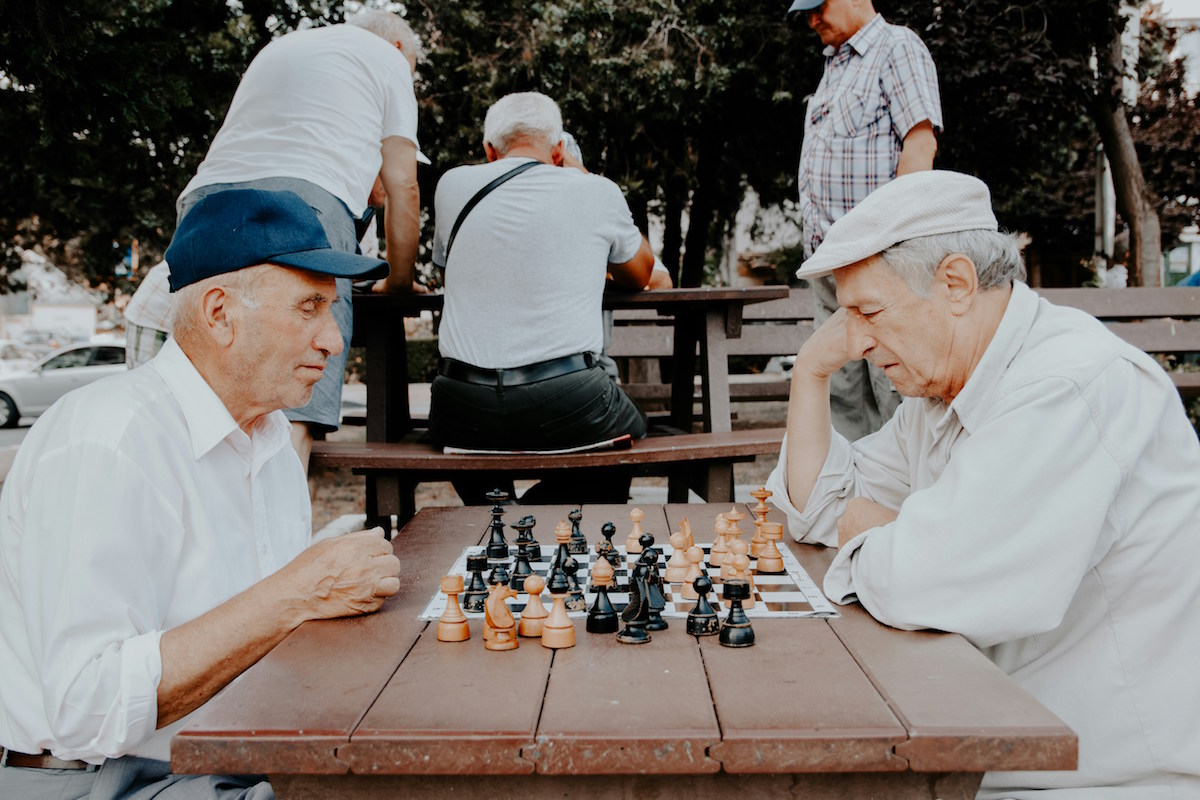In today’s fast-paced world, where technology seems to dominate every aspect of our lives, the significance of human connection cannot be overstated, especially for elderly individuals. Loneliness and isolation are prevalent among the elderly population, leading to adverse effects on their mental, emotional, and physical well-being. This article delves into the profound importance of social connections for elderly individuals, exploring how fostering meaningful relationships can significantly enhance their quality of life and overall happiness.
Understanding Social Isolation and Loneliness
Loneliness and social isolation are not just fleeting emotions; they can have detrimental effects on an individual’s health. Understanding social isolation and loneliness is crucial for addressing the root causes and implementing effective solutions. Elderly individuals often face isolation due to factors such as retirement, loss of loved ones, or physical limitations, making them more susceptible to loneliness.
Exploring the Impact on Mental Health
The impact on mental health cannot be understated when discussing social connections for the elderly. Feelings of loneliness and isolation can contribute to depression, anxiety, and cognitive decline. Studies have shown a direct correlation between social interaction and cognitive function in older adults, emphasizing the importance of staying socially engaged.
Addressing Physical Well-being
Physical health is intricately linked to social connections. Addressing physical well-being involves recognizing that loneliness can have tangible effects on one’s health, including increased risk of cardiovascular diseases, compromised immune function, and even a shorter lifespan. Engaging in social activities and maintaining relationships can lead to better health outcomes and a higher quality of life.

Benefits of Social Connections for Elderly Individuals
Building and nurturing social connections can bring forth a myriad of benefits that positively impact an elderly individual’s life. From emotional support to physical assistance, these connections play a vital role in promoting well-being.
- Emotional Support and Companionship
One of the most significant benefits of social connections is the emotional support and companionship they provide. Having someone to confide in, share experiences with, and lean on during challenging times can alleviate feelings of loneliness and foster a sense of belonging.
- Cognitive Stimulation and Mental Agility
Maintaining active social lives can also contribute to cognitive stimulation and mental agility. Engaging in conversations, participating in group activities, and learning new skills through social interactions can help keep the mind sharp and agile, reducing the risk of cognitive decline.
- Increased Sense of Purpose and Meaning
Social connections give elderly individuals a sense of purpose and meaning by providing opportunities to contribute to their communities, whether through volunteering, mentoring, or simply being there for others. Feeling valued and appreciated enhances overall life satisfaction and fulfillment.
Strategies for Fostering Social Connections For Elderly
Creating and nurturing social connections for elderly requires strategies that cater to the unique needs and preferences of elderly individuals. Implementing these strategies can help combat loneliness and enrich their lives.
Joining Community Groups and Clubs
Encouraging participation in community groups and clubs tailored to their interests can provide opportunities for social interaction and meaningful engagement. Whether it’s a book club, gardening group, or recreational sports team, these activities facilitate bonding with like-minded individuals.
Embracing Technology for Connection
Technology can bridge the gap between distance and connectivity for elderly individuals. Embracing technology for connection involves teaching them how to use social media platforms, video calling apps, and online forums to stay in touch with friends and family members, even if they’re miles away.
Volunteering and Giving Back
Engaging in volunteering and giving back initiatives allows elderly individuals to connect with others while making a positive impact on their communities. Whether it’s assisting at a local shelter, participating in environmental clean-ups, or tutoring children, giving back fosters a sense of belonging and fulfillment.

Overcoming Barriers to Social Connections For Elderly
Transportation and Mobility Challenges
Transportation and mobility limitations can hinder elderly individuals’ ability to participate in social activities and connect with others. Addressing transportation and mobility challenges may involve providing access to transportation services, organizing group outings with transportation included, or facilitating community-based transportation options.
Financial Constraints
Limited financial resources can also pose barriers to social engagement for elderly individuals. overcoming financial constraints may require identifying low-cost or free social activities, offering subsidies for participation in community programs, or connecting them with financial assistance resources.
Health Conditions and Disabilities
Health conditions and disabilities can impact an elderly individual’s mobility and comfort in social settings. **Managing Health Conditions and Disabilities** involves ensuring accessibility accommodations, providing assistive devices as needed, and offering support services to address their specific needs.
Cultivating Intergenerational Connections
Benefits of Intergenerational Interaction
Promoting interactions between different age groups can be immensely beneficial for both elderly individuals and younger generations. The benefits of intergenerational interaction include fostering mutual understanding, sharing knowledge and experiences, and combating ageism and stereotypes.
Intergenerational Programs and Initiatives
Intergenerational programs and initiatives bring together individuals of different ages to engage in shared activities, such as mentorship programs, intergenerational learning projects, and collaborative community service efforts. These initiatives promote social cohesion and strengthen bonds across generations.
Building Bridges with Families and Caregivers
Facilitating meaningful connections between elderly individuals, their families, and caregivers is essential for providing comprehensive support. Building bridges with families and caregivers to foster social connections for elderly involves promoting open communication, providing education on effective caregiving strategies, and fostering a collaborative approach to caregiving responsibilities.

Harnessing the Power of Social Support Networks
Formal Support Services
Access to formal support services, such as home care services, adult day programs, and support groups, can provide valuable resources and assistance for elderly individuals and their caregivers. These services offer opportunities for social interaction, emotional support, and practical assistance tailored to their needs.
Informal Support Networks
Informal support networks, including friends, neighbors, and faith communities, play a crucial role in providing social connections for elderly individuals. Nurturing these relationships and fostering a sense of community can contribute to their overall well-being and resilience.
Embracing Cultural and Social Diversity In Social Connections For Elderly
Recognizing Diverse Social Needs
It’s essential to recognize and respect the diverse social needs and preferences of elderly individuals from different cultural backgrounds and identities. Recognizing diverse social needs involves embracing cultural sensitivity, promoting inclusivity, and tailoring social activities to accommodate various cultural norms and traditions.
Celebrating Diversity Through Community Events
Organizing community events that celebrate cultural diversity and showcase different traditions, cuisines, and art forms can create opportunities for cross-cultural exchange and connection. These events foster a sense of belonging and unity among elderly individuals from diverse backgrounds.
Conclusion
The importance of social connections for elderly individuals cannot be overstated. By understanding the profound impact of loneliness and isolation on their well-being and quality of life, we can take proactive steps to foster meaningful relationships, provide support, and enhance their overall happiness. Through community engagement, embracing technology, and promoting social activities, we can create inclusive environments where elderly individuals feel valued, connected, and empowered. When we strive through collective efforts and a commitment to promoting social inclusion, we can enhance the quality of life for elderly individuals and ensure they remain active, engaged, and empowered members of society.
Related Questions
Can loneliness lead to physical health problems?
Yes, loneliness can contribute to various physical health issues, including cardiovascular diseases, compromised immune function, and even a shorter lifespan.
What are some signs that an elderly person may be experiencing loneliness?
Signs of loneliness in elderly individuals may include withdrawal from social activities, loss of interest in hobbies, changes in appetite or sleep patterns, and expressions of sadness or hopelessness.
Is it ever too late for elderly individuals to build new social connections?
No, it’s never too late to foster new social connections. Engaging in community activities, joining clubs or groups, and reaching out to old friends or family members can all facilitate the formation of new relationships.
How can family members support elderly loved ones who are experiencing loneliness?
Family members can support elderly loved ones by regularly checking in on them, encouraging participation in social activities, facilitating technology use for communication, and arranging visits or outings to combat isolation.
What are some simple ways to initiate conversations with elderly individuals and foster connections?
Simple conversation starters include asking about their interests, sharing stories or memories, discussing current events, or inviting them to join in activities or outings. Showing genuine interest and empathy can go a long way in building rapport.


